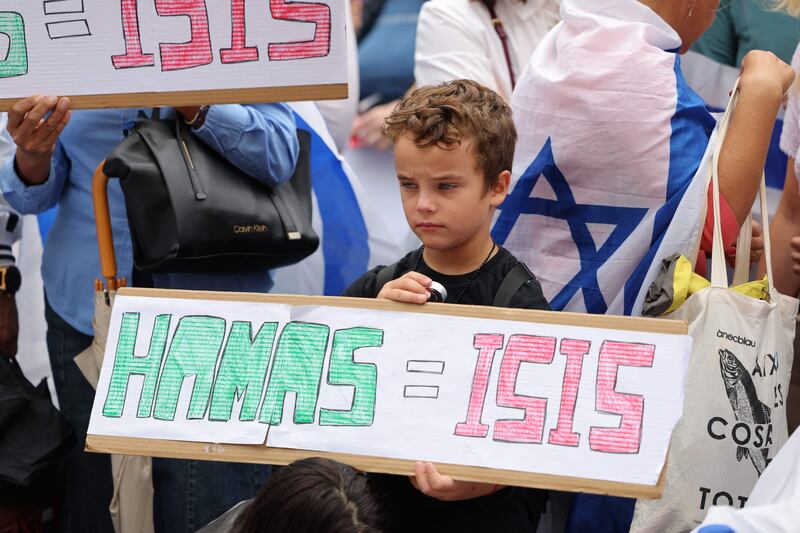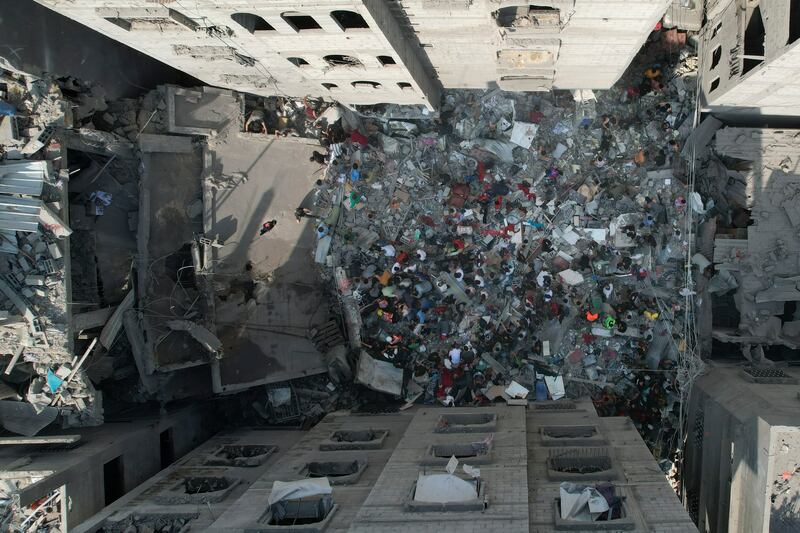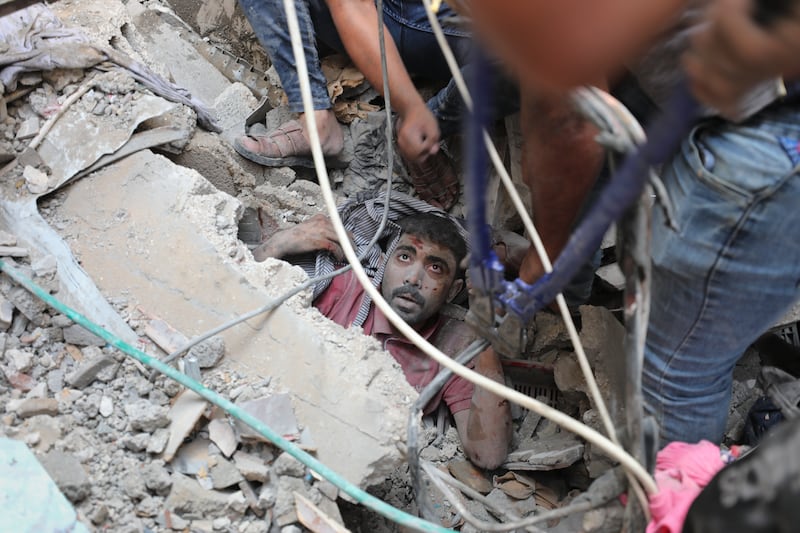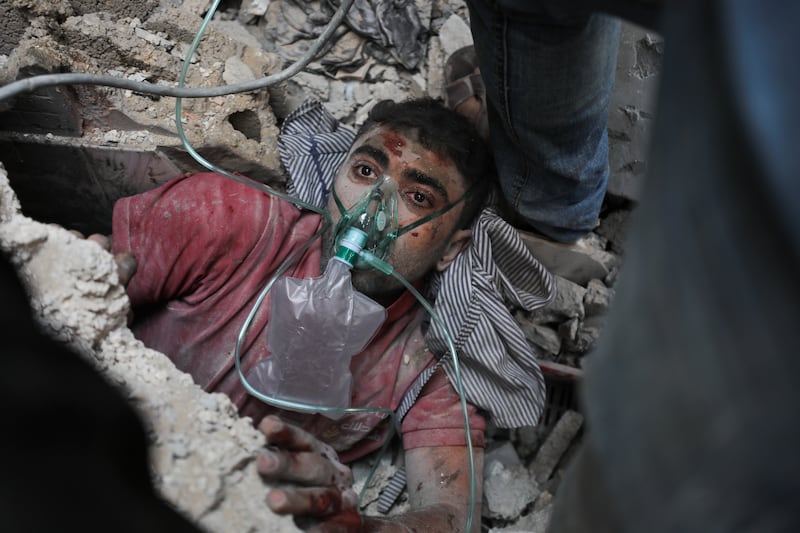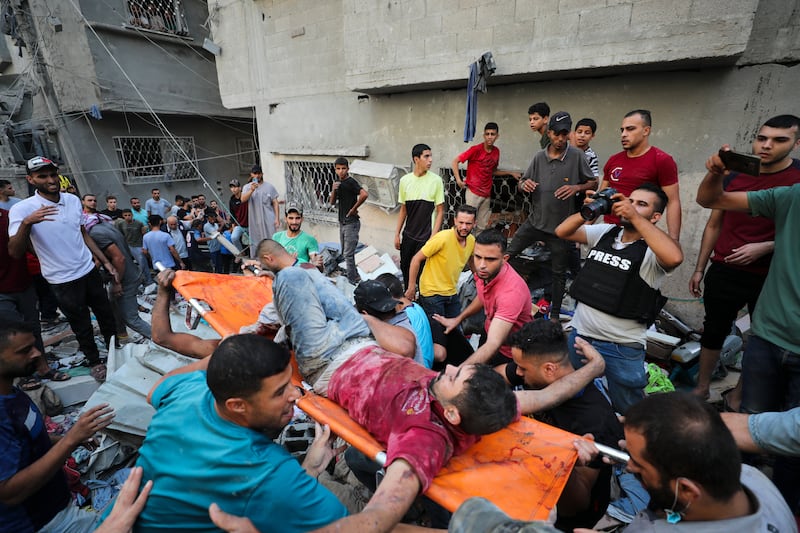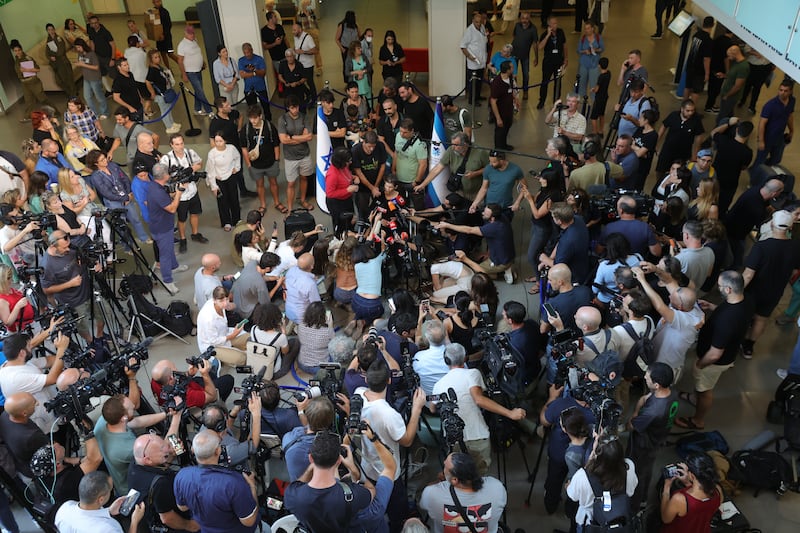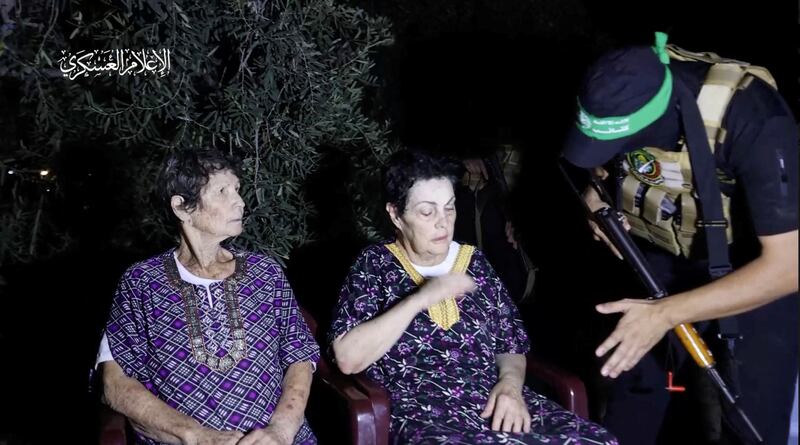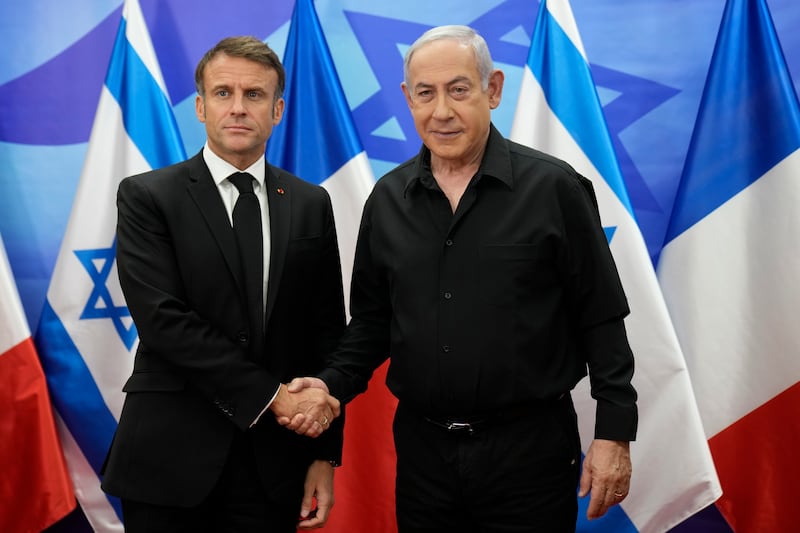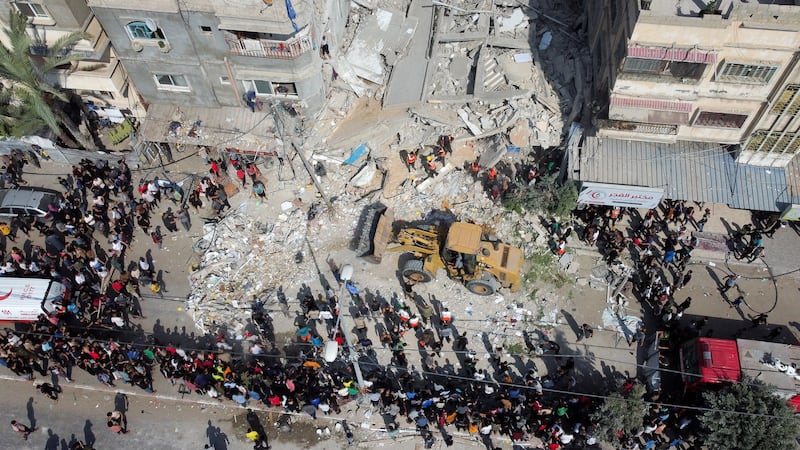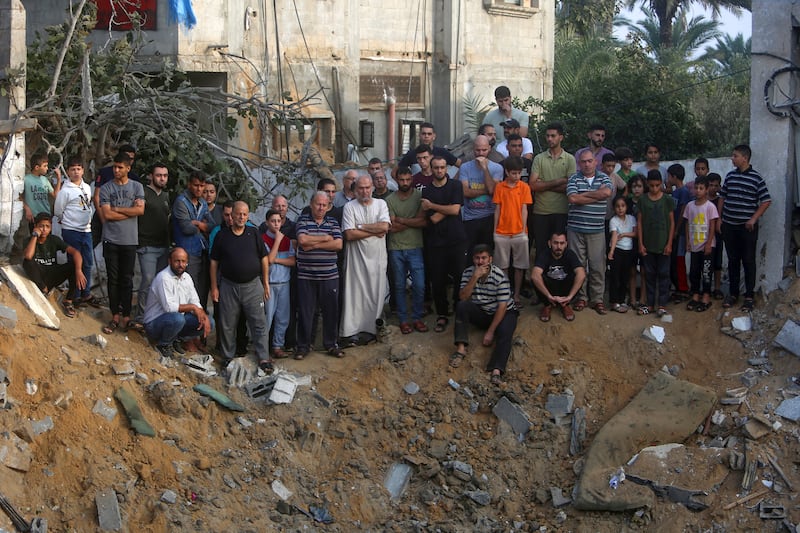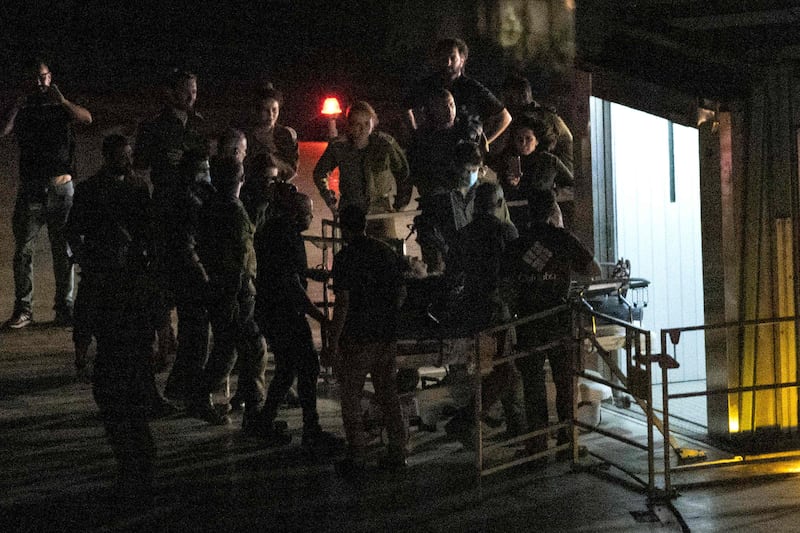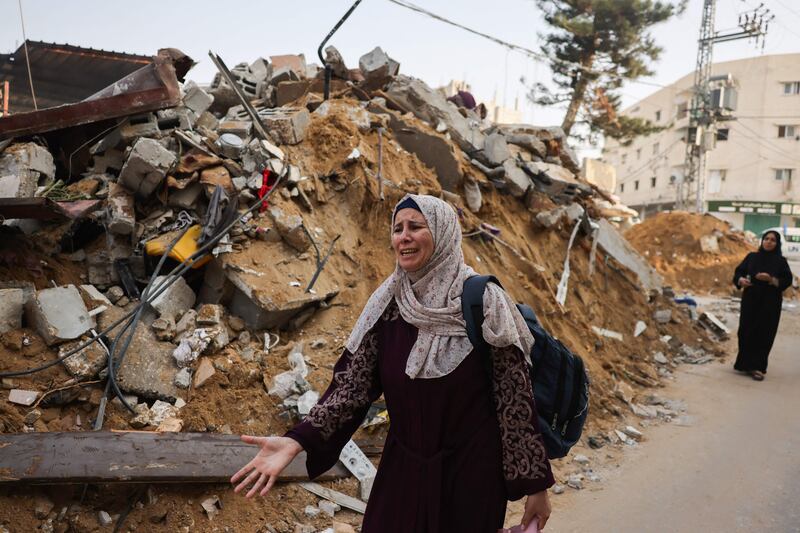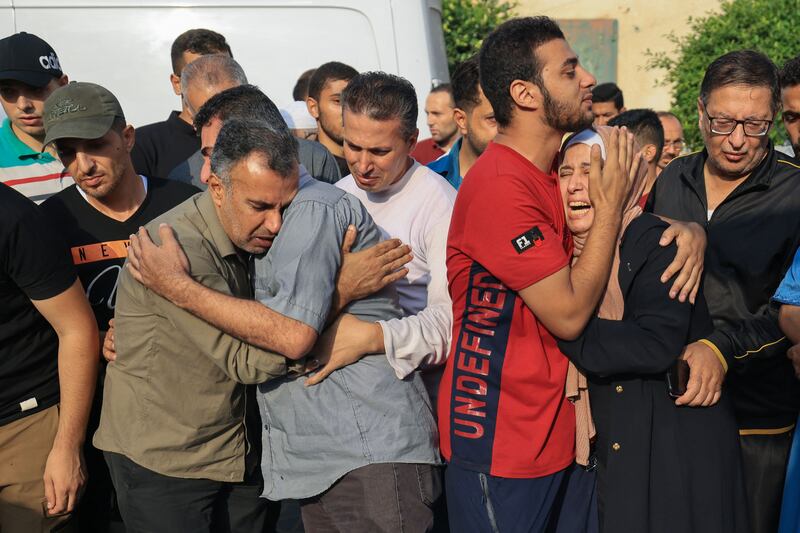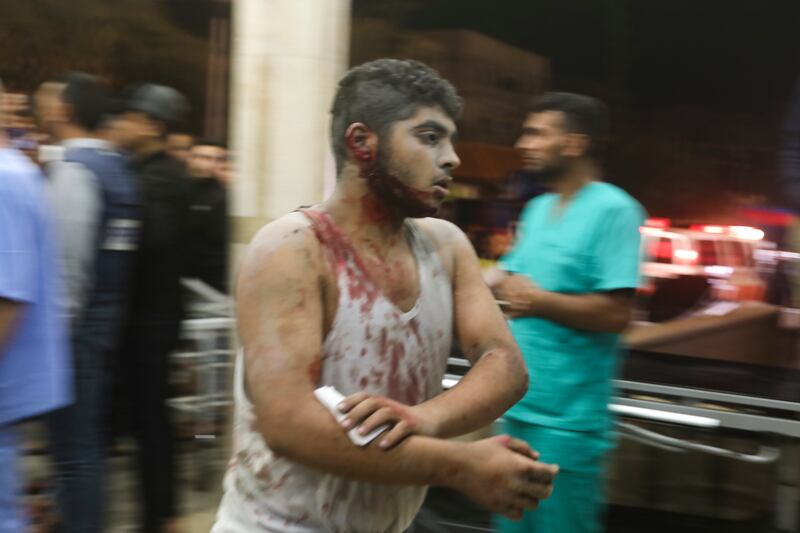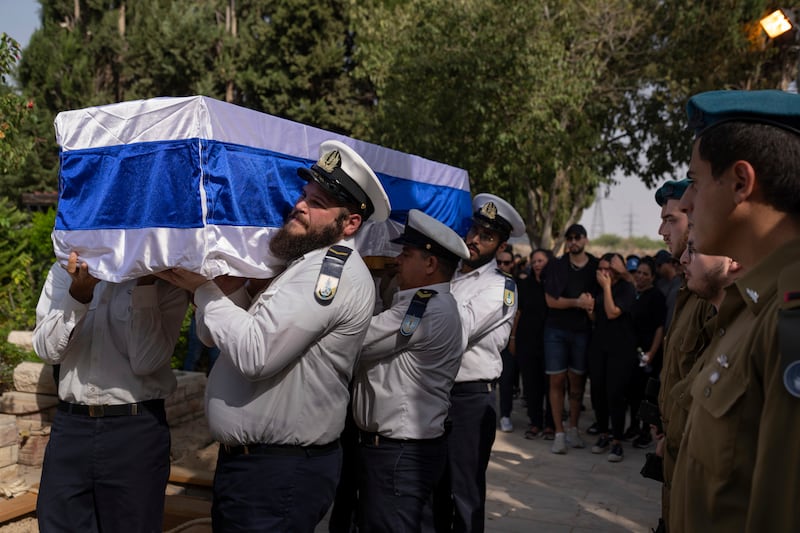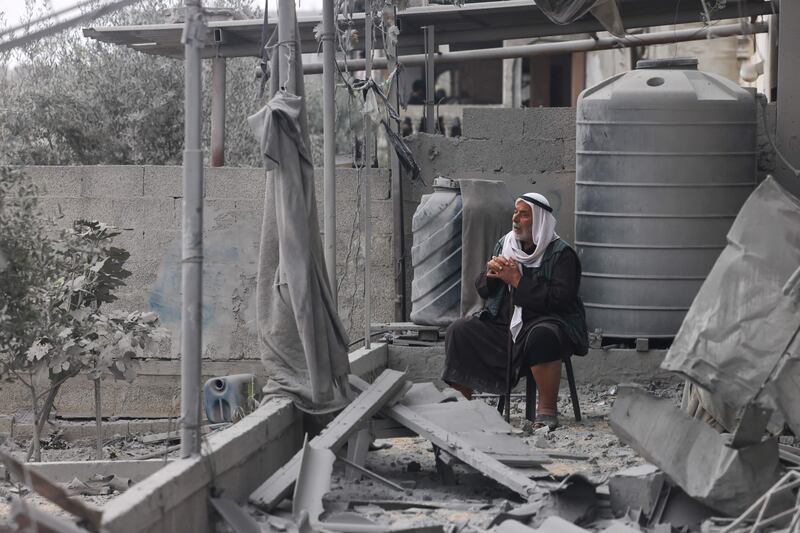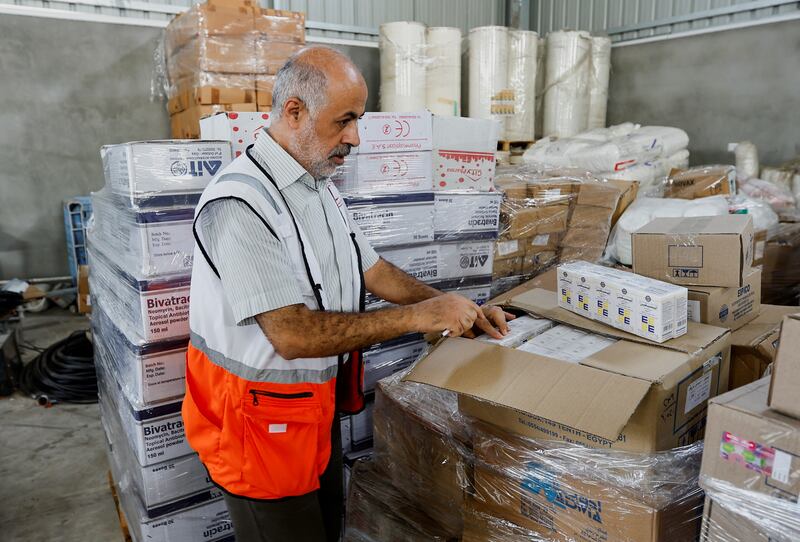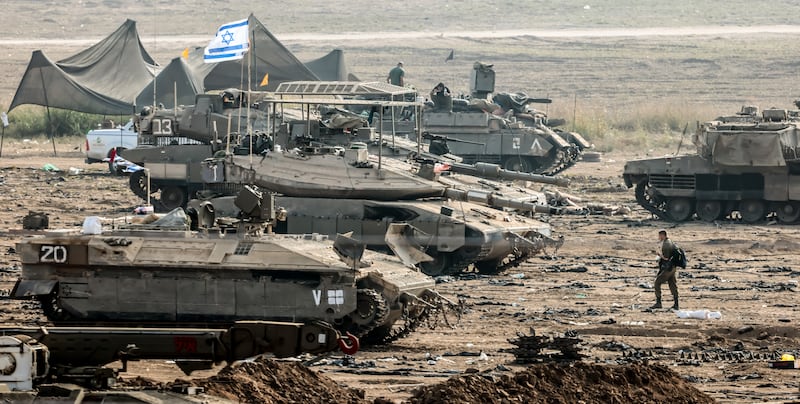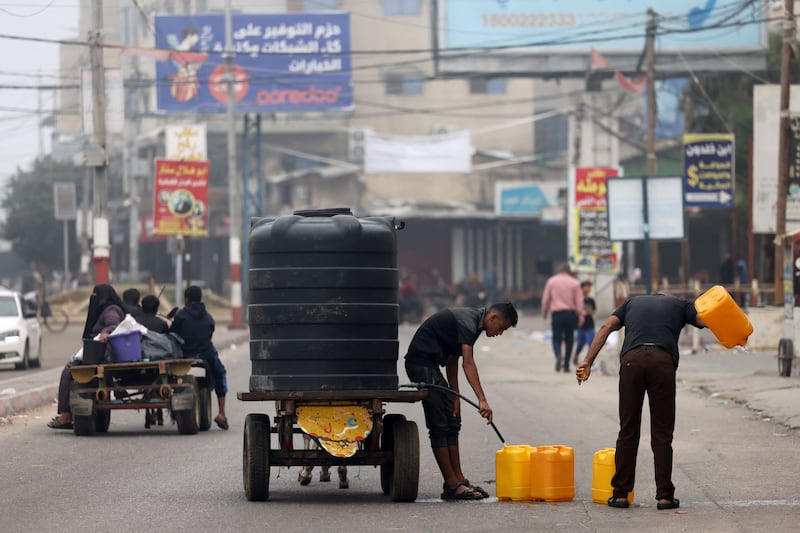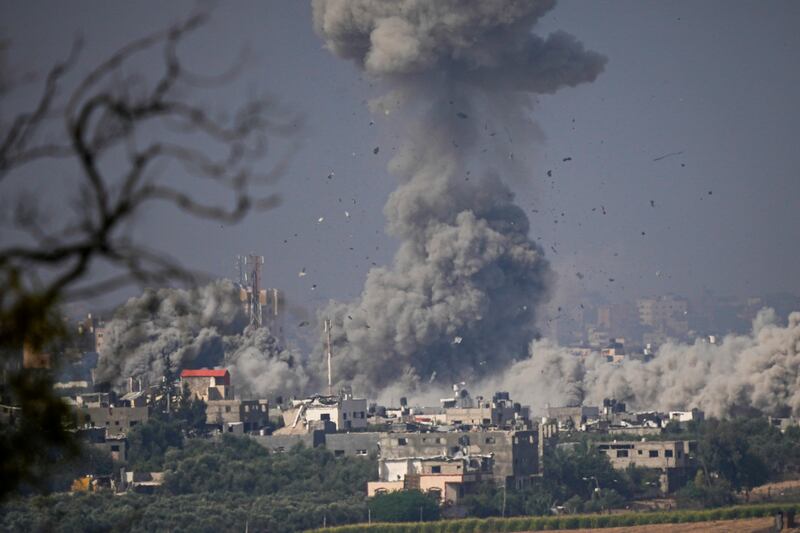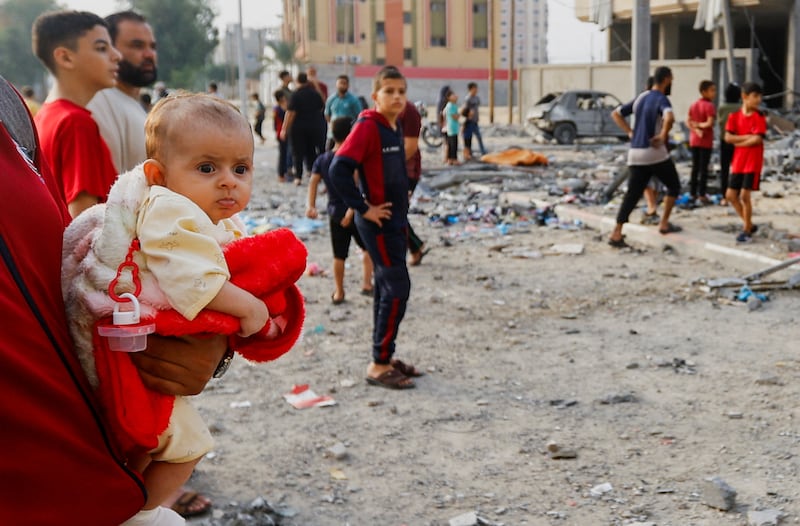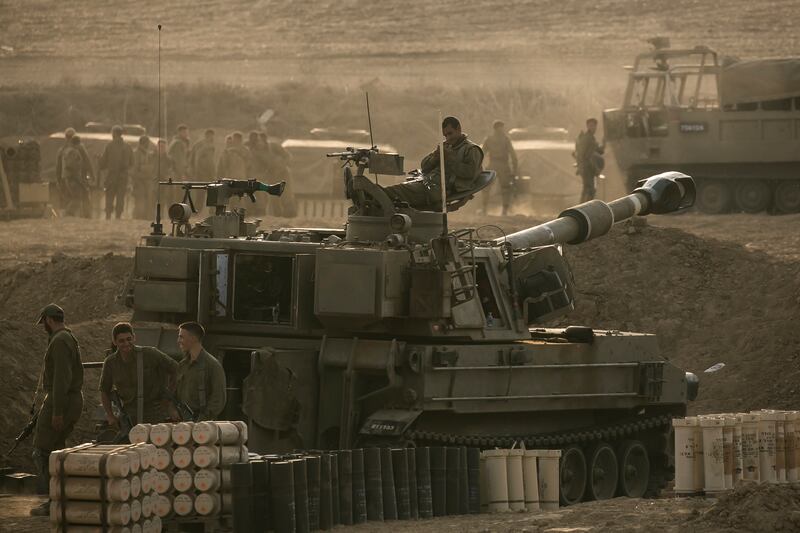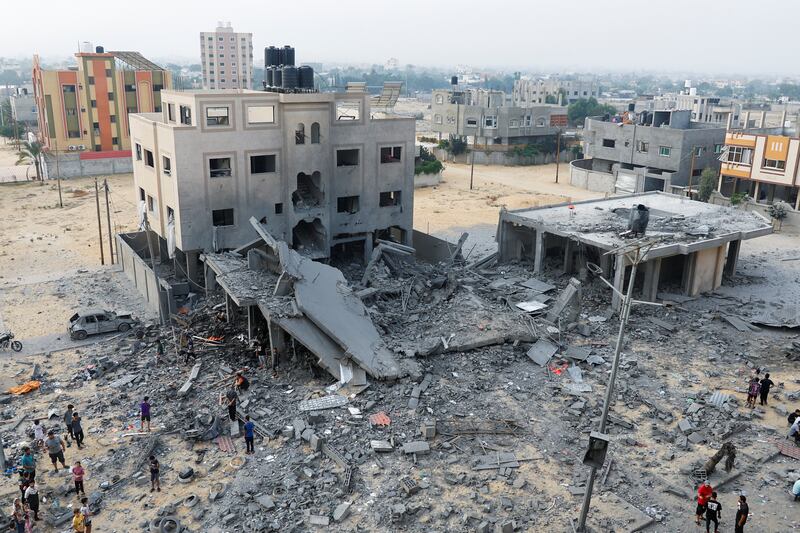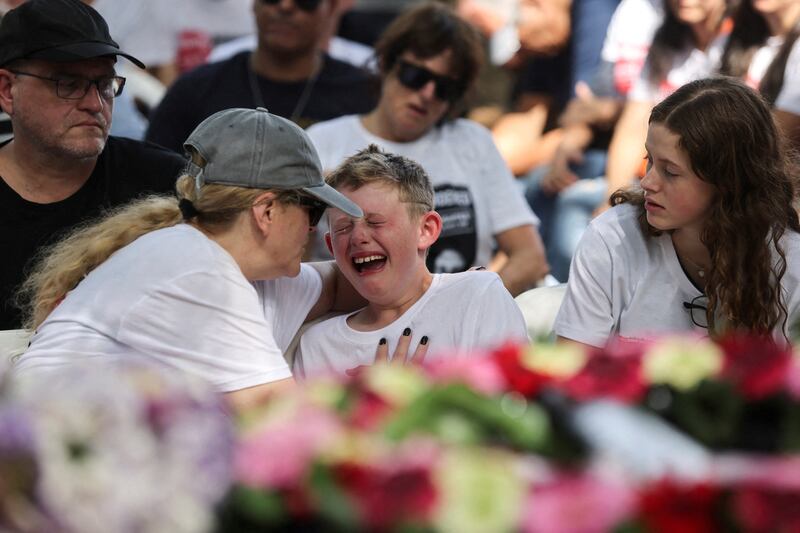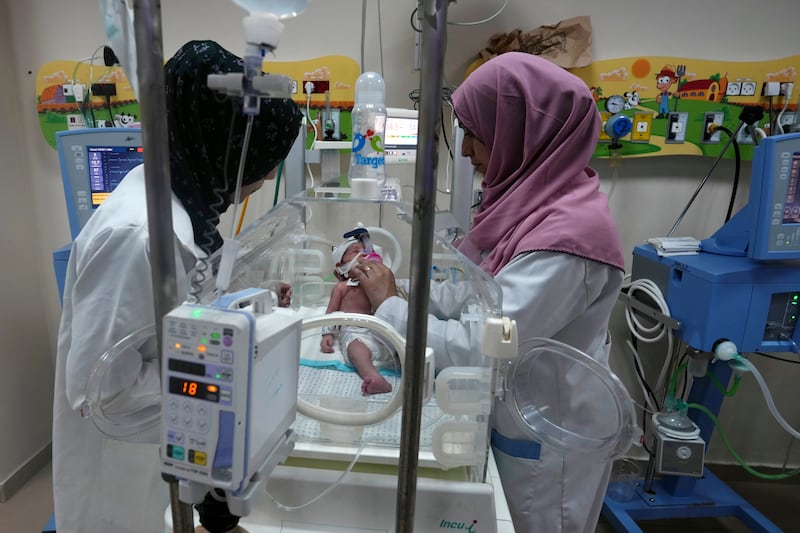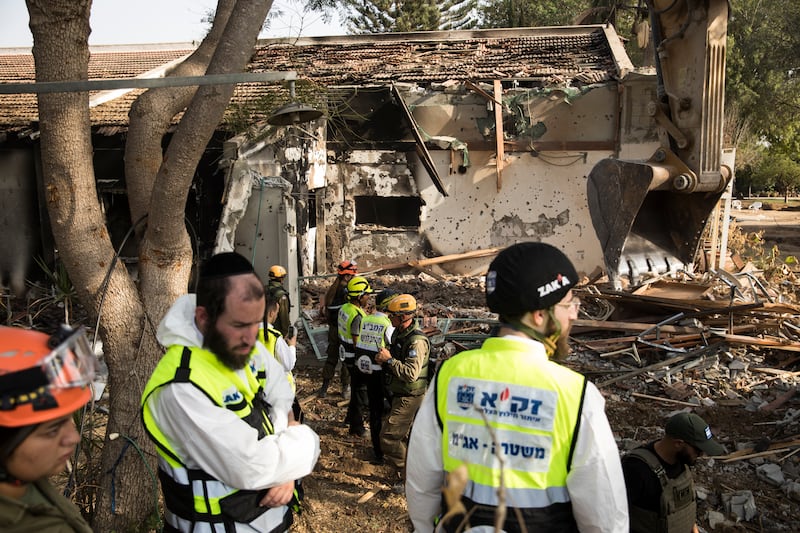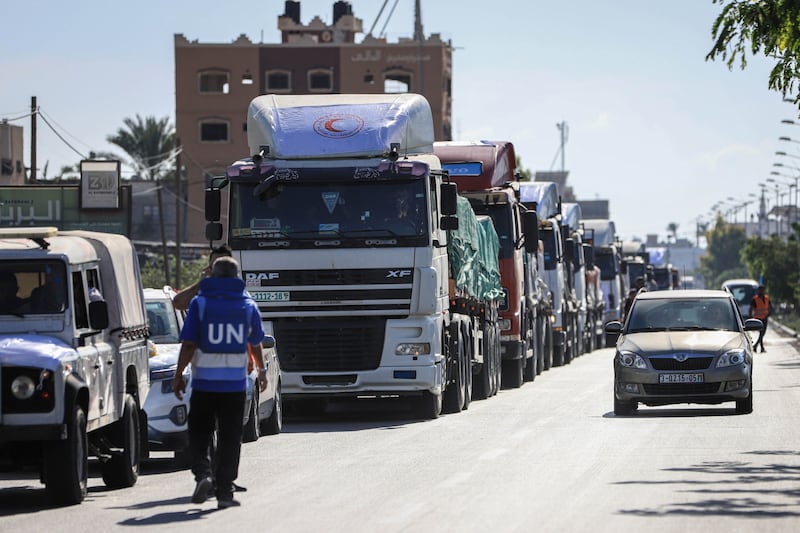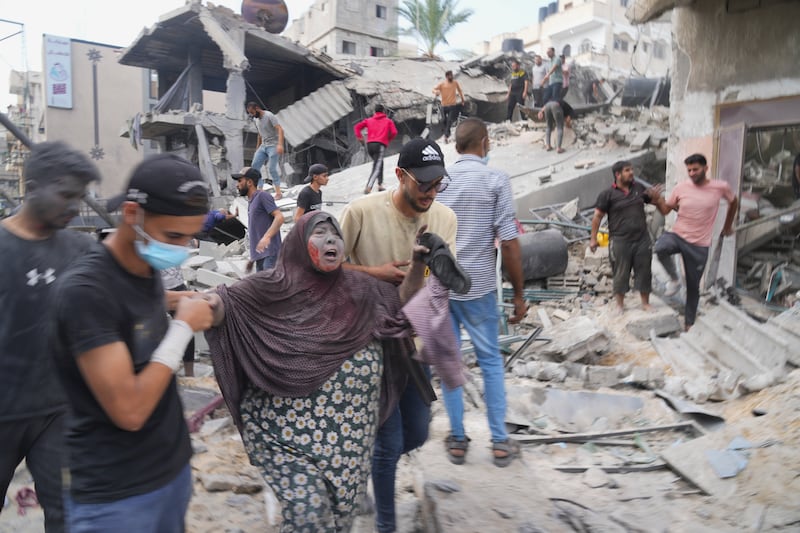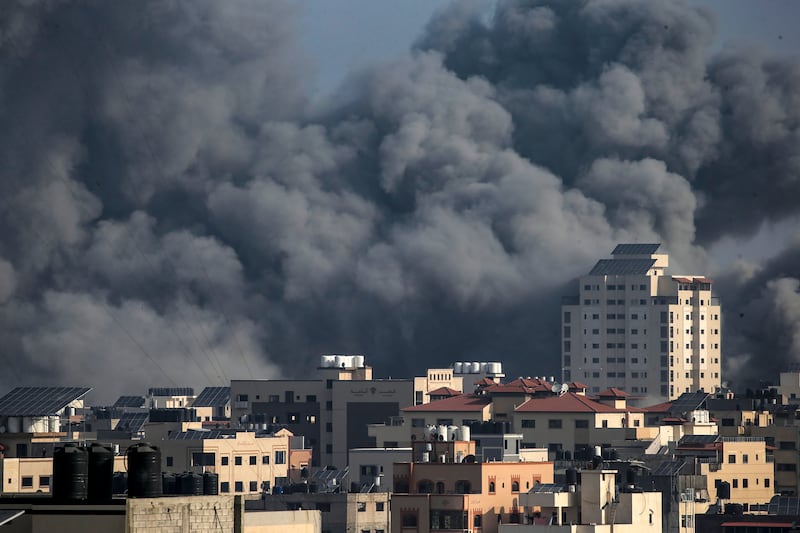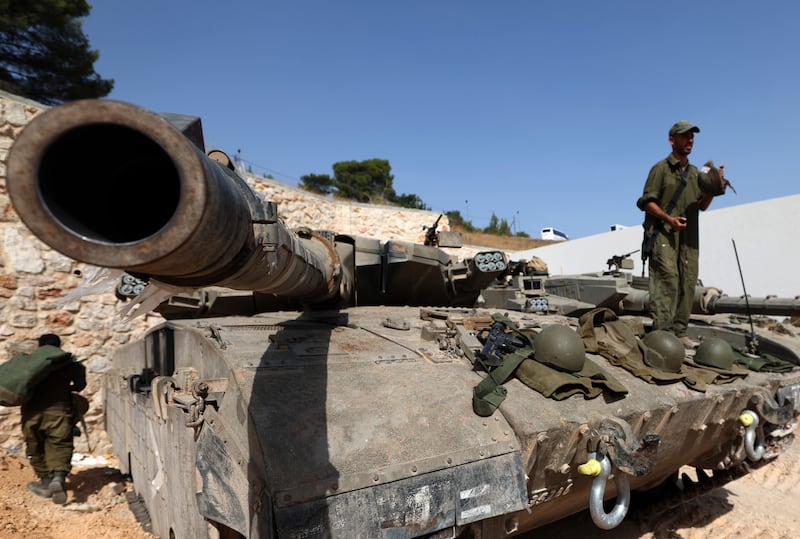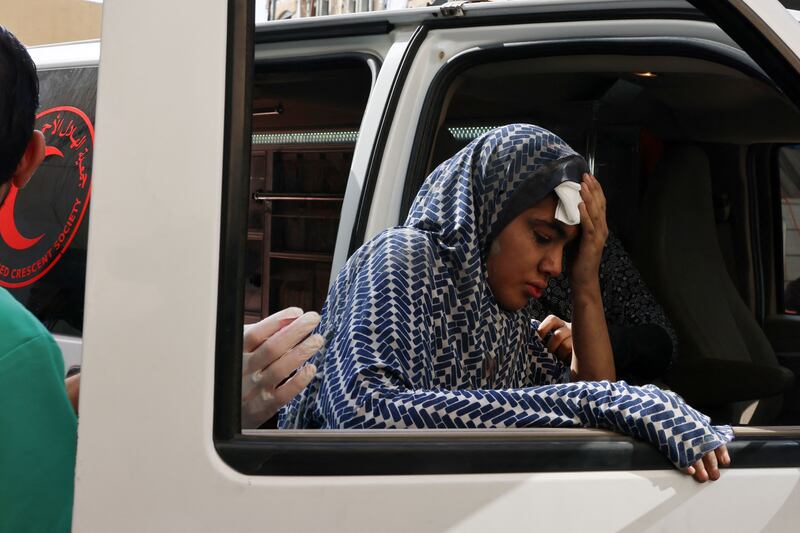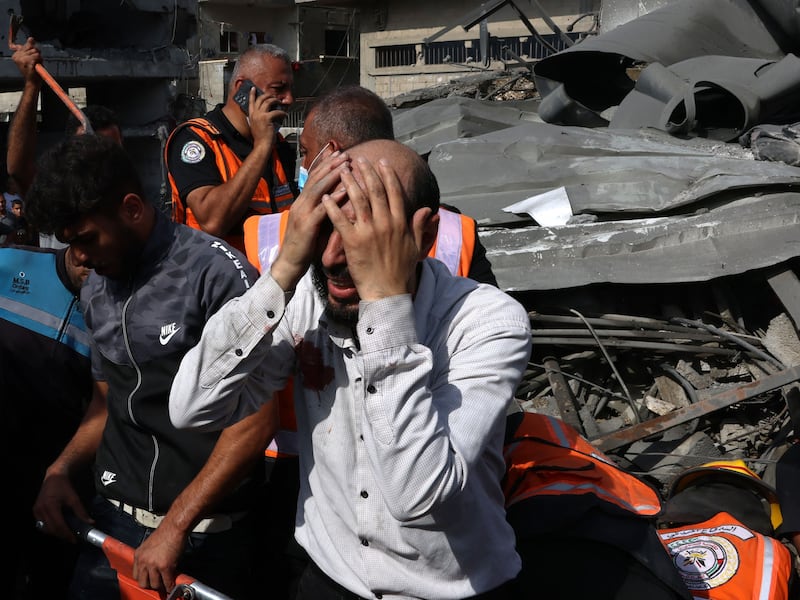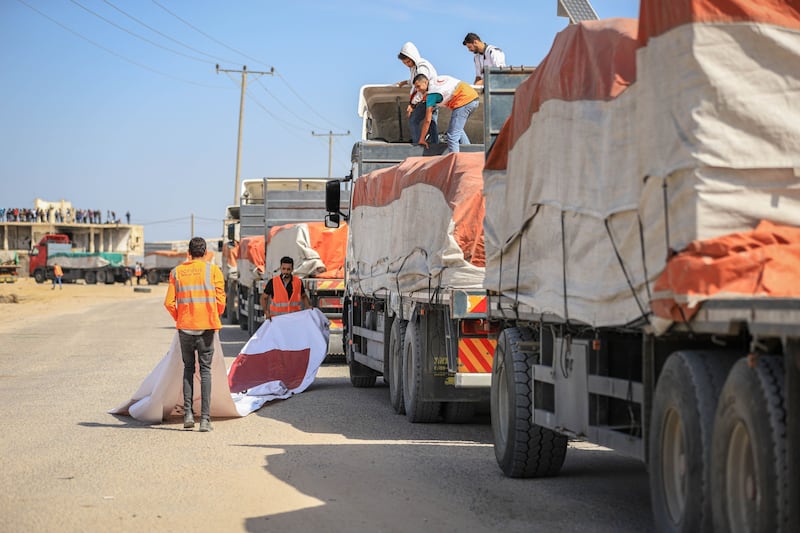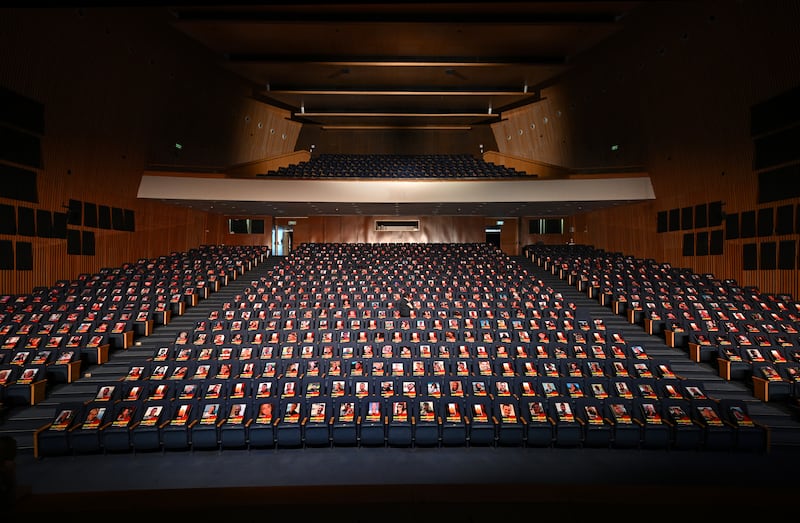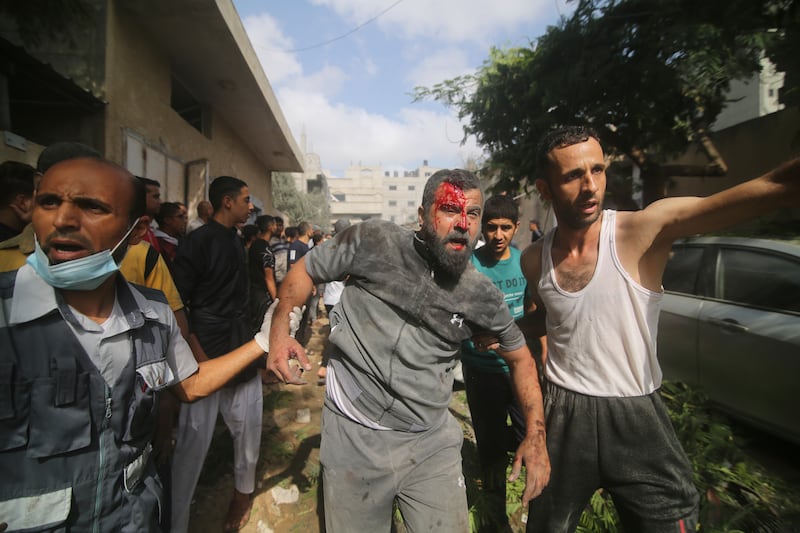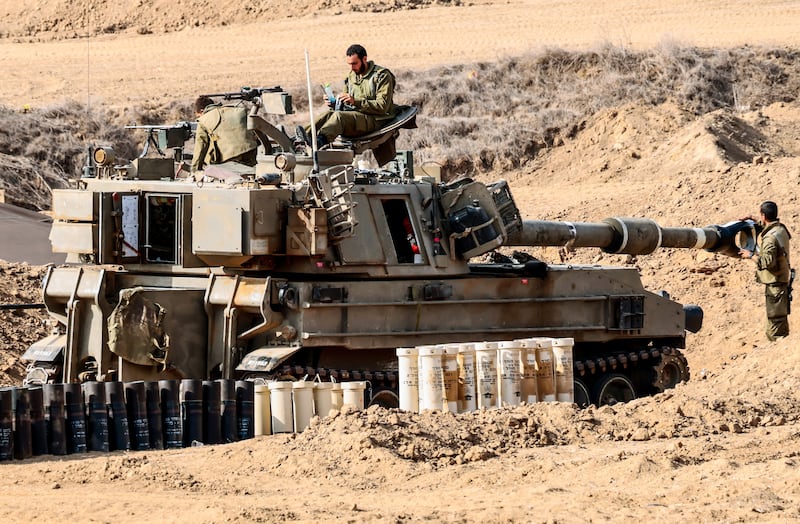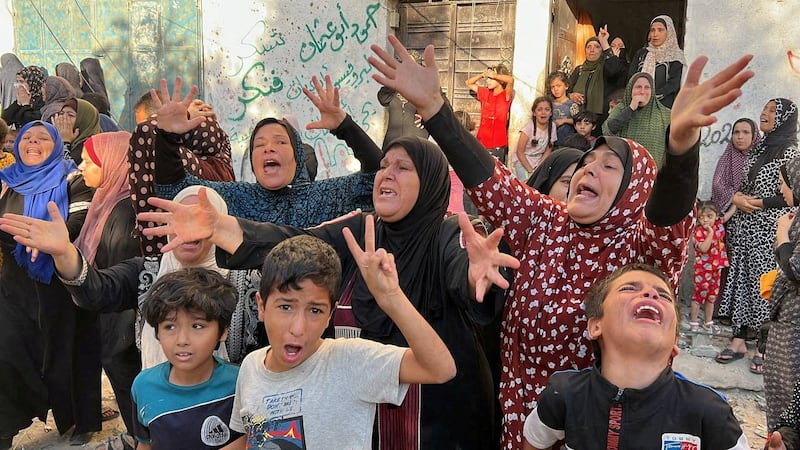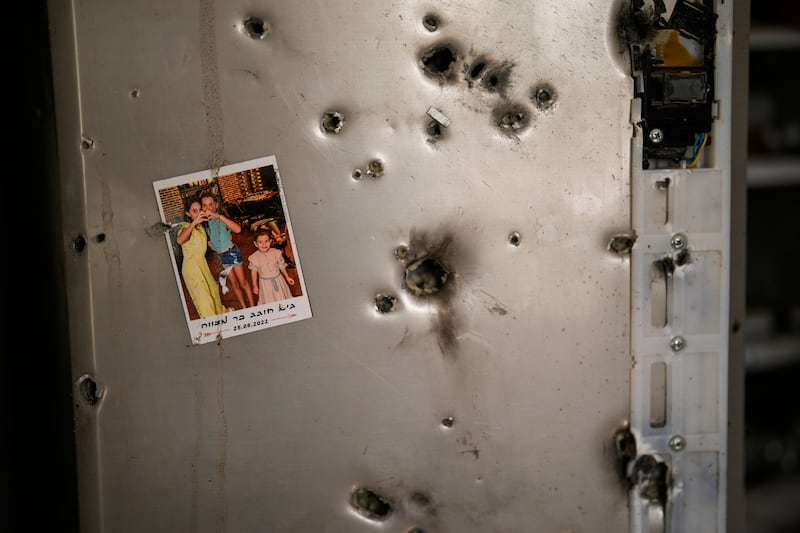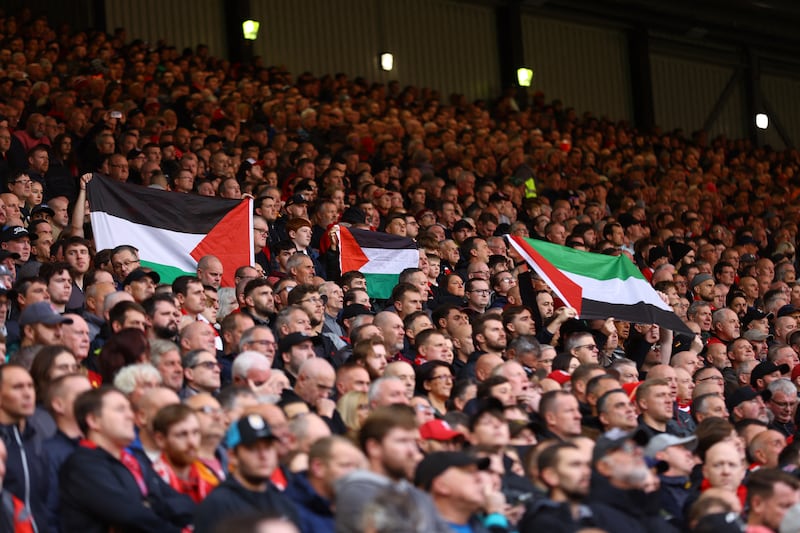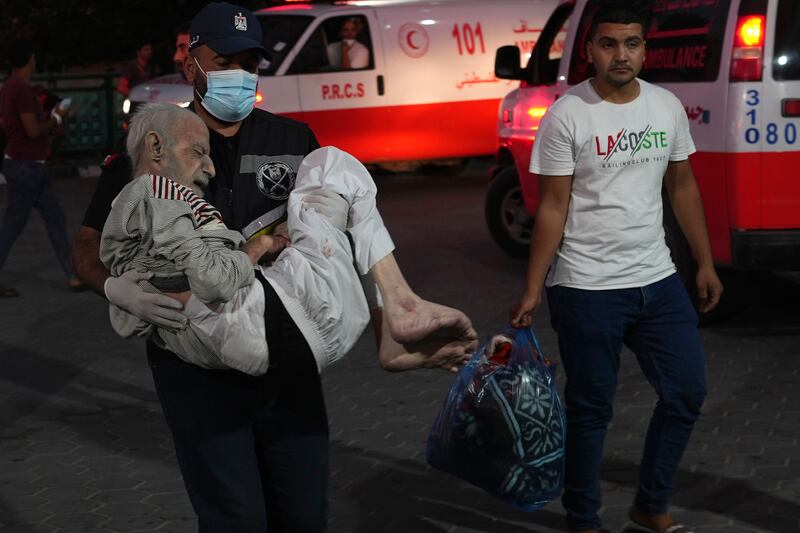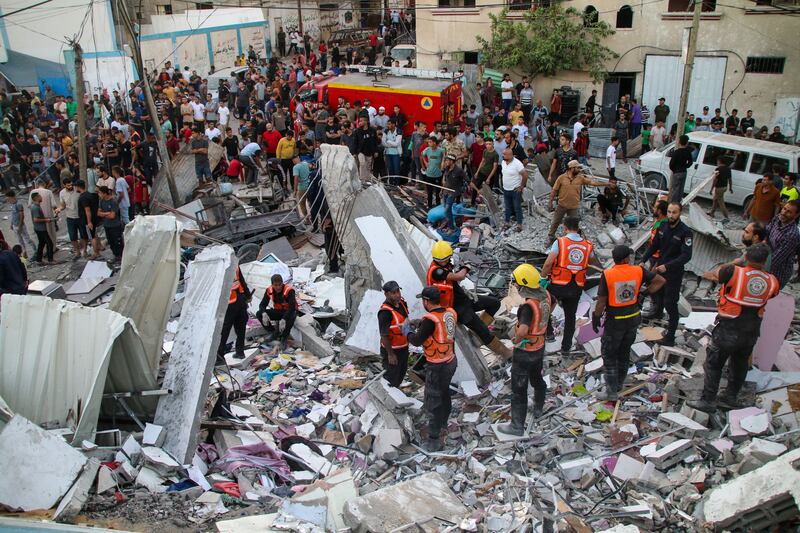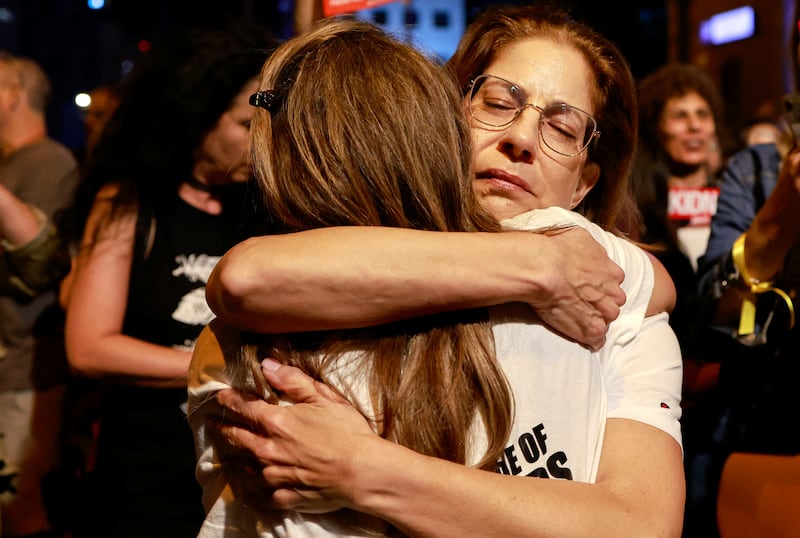Live updates: Follow the latest news on Israel-Gaza
French President Emmanuel Macron has suggested the international coalition fighting ISIS in Iraq and Syria could be expanded to also target Hamas in the Gaza Strip.
Several experts have told The National the proposal is unrealistic, as it would quickly alienate Arab countries and lead to divisions in the alliance made up of 81 nations.
Speaking alongside Israeli Prime Minister Benjamin Netanyahu in Jerusalem on Tuesday, Mr Macron said France was “ready” for the global coalition against ISIS “to also fight against Hamas”.
Israel is not part of the anti-ISIS coalition, which was established to fight ISIS in September 2014, though its Arab neighbours such as Lebanon, Jordan and Egypt are.
Analysts said while greater international co-operation was needed to address urgent matters such as aid delivery to Gaza, hostage talks and ceasefire negotiations, any attempt to use coalition resources to strike Hamas in Gaza would promptly lead to friction.
“The idea that the international community should form a coalition to fight Hamas is just about the worst possible idea on the table,” said Charles Lister, a senior fellow and director of the Syria and Countering Terrorism and Extremism programmes at the Middle East Institute.
“It would further exacerbate tensions, widen regional divisions and virtually guarantee the regional escalation that everyone wants to avoid.”
Karim Emile Bitar, associate research fellow at the Institute for International and Strategic Affairs in Paris, said any expansion of the anti-ISIS coalition was “very unlikely to happen”.
“What is absolutely needed, however, is an increasing multilateral co-operation and efforts on behalf of all regional and international powers to insist on the respect of humanitarian law and ideally call for an immediate ceasefire,” he said.
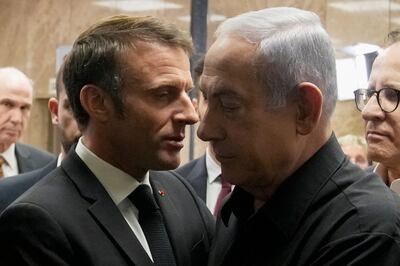
The anti-ISIS coalition was created after militants stormed across Iraq and Syria in 2014, carrying out murderous atrocities as they claimed large parts of both countries to be their new “caliphate”. Mr Netanyahu has compared Hamas, whose armed wing killed 1,400 people in southern Israel on October 7, to ISIS.
Hadi Jalo Marie, chairman of the Political Decision think tank in Baghdad, highlighted the many differences between the two groups.
ISIS “is a cross-border terrorist organisation that includes extremists of different nationalities and threatens all countries, including the West”, he said.
“Hamas is a Palestinian group [that] fights only Israel inside Palestine, not in other countries,” he added, noting there could be “negative reactions” to Mr Macron's suggestion from many countries except Israel and some of its allies.
Jordanian counter-terrorism specialist Saud Al Sharafat said it was unclear whether Mr Macron had discussed the issue with Washington before making the announcement in Israel.
“The French always like to come with a distinctive suggestion,” Mr Al Sharafat said.
He pointed out several Arab countries opposed to the current Israeli military operations in Gaza are members of the anti-ISIS coalition.
“The immediate effect of what Macron envisages could be the break-up of the coalition,” said Mr Al Sharafat, who heads the Shorufat Centre for Globalisation and Terrorism Studies in Amman.
James Jeffrey, former US special envoy to Syria and chairman of the Wilson Centre's Middle East Programme, said Mr Macron's idea was a good one “in spirit,” but “in practical terms it won't work.”
The French leader's suggestion “recognises – as US, Europe and Asian allies did in the case of Ukraine – that we are facing a common threat to the international order and should respond”, Mr Jeffrey said.
But the coalition is made up of nations and organisations with differing views of Hamas, Israel and the Palestinian question, he added.
For any expanded coalition to work, “Israel would have to shift position on the Palestinians”, Mr Jeffrey said.
“At least lip service to the two-state solution and an absolute, no-exception halt to settlements and settlement growth.”
The latest from the Israel-Gaza war – in pictures
Joel Rayburn, founder and director of the American Centre for Levant Studies, said the Israel-Gaza conflict was so closely related to the broader Israeli-Palestinian political question that it would be “supremely difficult” to replicate a narrowly focused counter-terrorism coalition modelled on the counter-ISIS alliance.
“The campaign against the ISIS caliphate did not directly involve any broader political questions, only military plans,” he noted.
